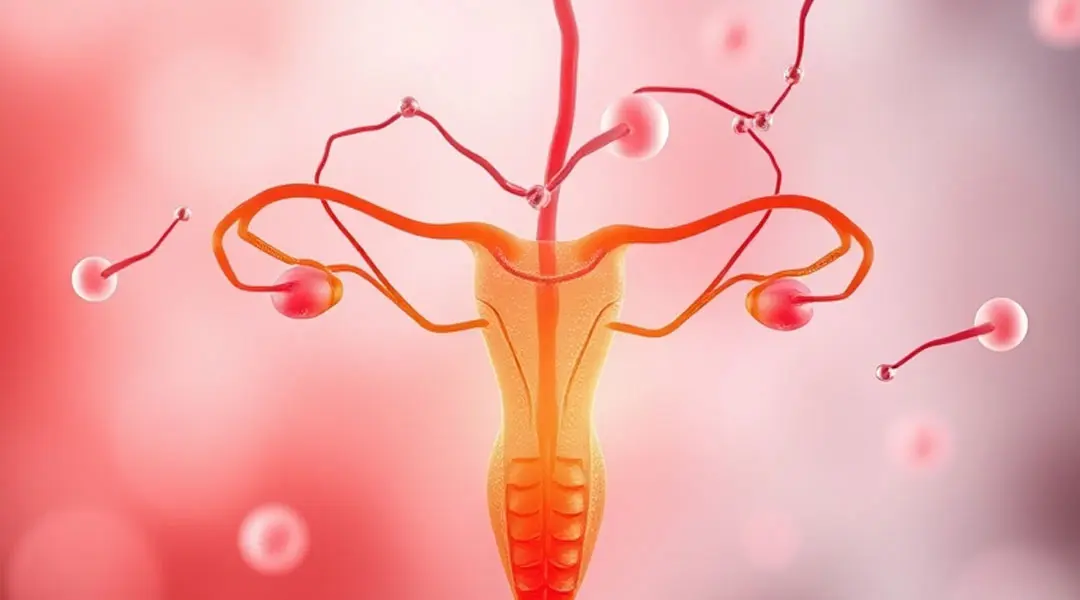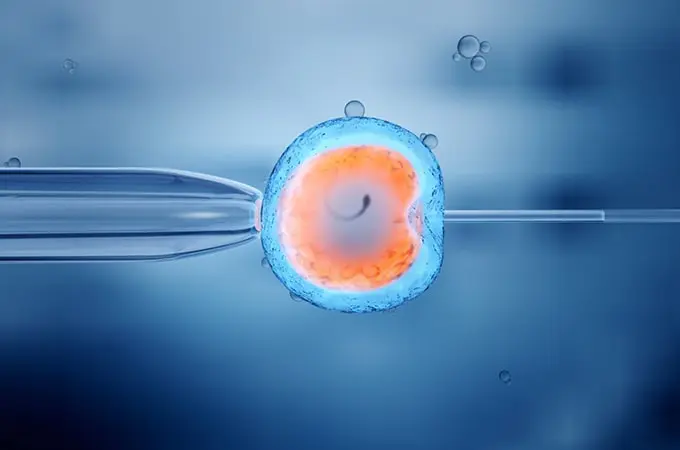SensIQ is a doctor-formulated system designed to help women experiencing menopause protect their brain health and restore mental clarity. Many women also wonder about fertility treatments, such as in vitro fertilization (IVF), and whether they affect menopause timing. A common concern is: Can IVF cause early menopause?
This article reviews the science, common myths, and medical consensus, with guidance from experts like Dr. Luke Barr.
Key Takeaways
- IVF does not cause, trigger, or accelerate early menopause; it retrieves eggs that would otherwise be lost naturally each month.
- Ovarian stimulation medications can cause short-term effects such as hot flashes or mood swings, but these symptoms resolve once treatment ends.
- The true causes of early menopause are linked to genetics, medical conditions, and lifestyle factors, not IVF treatment.
- Women who have reached menopause cannot use their eggs for IVF, but options like egg donation allow conception even for postmenopausal women.
- Success rates for IVF depend mainly on age and ovarian reserve, with women over age 40 often requiring donor eggs for better outcomes.
Does IVF Affect Menopause Timing?
Does IVF Cause or Trigger Early Menopause?
Research shows that IVF treatment does not directly cause early menopause. Women often assume that retrieving multiple eggs during a cycle reduces ovarian reserve faster, but this is a misconception.
In reality, those eggs would naturally be lost during the menstrual cycle. IVF simply collects eggs already destined to be unused. Thus, while some may ask if IVF can lead to early menopause or can IVF trigger early menopause, the medical consensus is that IVF does not speed up the onset of menopause.
IVF Medication and Early Menopause
Some women ask if IVF medication can cause early menopause. IVF protocols often use ovarian stimulation drugs to produce more eggs in one cycle. These medications temporarily affect hormone levels but do not cause permanent changes leading to premature menopause. After treatment, hormone balance typically returns to baseline, and the woman’s reproductive years continue naturally until she reaches menopause in her 40s or 50s.
IVF Egg Retrieval and Early Menopause
Another concern is whether egg retrieval causes early menopause. The procedure does not “use up” eggs faster. Instead, it rescues eggs that the body would otherwise discard. For women experiencing fertility struggles, IVF retrieval allows the use of existing eggs without shortening the total length of fertility. Thus, egg retrieval itself is not a risk factor for early menopause.
IVF, Hormones, and Long-Term Effects

Does IVF Mess Up Your Hormones?
IVF requires hormone injections that can create short-term side effects like mood swings, bloating, or hot flashes. However, these effects are temporary and linked to ovarian stimulation. Hormone levels stabilize after a cycle, and there is no evidence that IVF permanently disrupts natural menopause timing or increases long-term risks.
How IVF Affects Estrogen and Progesterone
During IVF, estrogen and progesterone levels are carefully managed. These hormones are central to egg development and implantation. While IVF may temporarily elevate hormone levels, it does not change how the body produces them across the reproductive years.
Both premenopausal and postmenopausal women should understand that IVF does not permanently alter estrogen or progesterone function.
Long-Term Effects of IVF
Studies on IVF long-term side effects show no link between IVF and earlier menopause. Most women undergoing IVF experience menopause at the same age as those who did not undergo IVF. Long-term effects are more closely tied to underlying conditions—like diminished ovarian reserve—that lead women to seek IVF in the first place.
Menopause and IVF Treatment Options
Menopause and IVF Treatment: What to Know
Menopause and IVF treatment are often discussed together. Women may confuse fertility decline with menopause, but they are not the same. Natural menopause occurs when ovarian activity ceases completely, while IVF treatment helps those with low egg counts or older age still try to conceive.
Can You Do IVF with Early Menopause?
Some women face premature menopause before age 40. In these cases, their ovarian reserve is very low. While it is harder to undergo IVF with premature menopause, some options exist. A fertility specialist may suggest egg donation if the ovaries no longer respond to stimulation.
In Vitro Fertilization After Menopause
Questions also arise about in vitro fertilization after menopause. Women who have reached menopause cannot use their eggs. However, IVF is still possible with donor eggs. Many postmenopausal women have conceived this way, showing that IVF for menopause is technically possible, but it requires special medical guidance.
IVF Success and Menopause Age
Success rates depend heavily on age. Women at age 40 or beyond often need donor eggs for higher chances of success. IVF success is not determined by menopause alone, but by ovarian reserve, egg quality, and the specific fertility treatments chosen.
What Causes Early Menopause
What Is the Main Cause of Early Menopause?
The primary causes of early menopause are genetics and medical conditions. IVF treatment itself is not considered a cause.
Genetics and Family History
Family history plays a strong role. If a mother or sister reached menopause early, chances are higher for other relatives.
Medical Conditions and Treatments
Autoimmune diseases, cancer therapies, or surgical removal of the ovaries can cause premature menopause. These are medical drivers, unlike IVF, which does not initiate menopause.
Lifestyle and Environmental Factors
Smoking, poor nutrition, or chronic stress may lead to earlier menopause. Lifestyle changes can sometimes delay the onset, but natural menopause is still genetically timed for most women.
Recognizing Early Menopause Symptoms

What Were Your First Signs of Early Menopause?
Women often describe symptoms like irregular periods, hot flashes, or night sweats as their first signs. These experiences are common for women experiencing early menopause.
Common Symptoms Women Experience
Typical symptoms of menopause include:
- Hot flashes and night sweats
- Mood swings and irritability
- Vaginal dryness
- Sleep problems
- Memory and focus challenges
These occur in both natural menopause and premature menopause.
Supporting Health in Midlife
Managing Brain and Mood Changes
Many women notice brain fog or mood changes as their hormones shift. SensIQ helps address these changes with a protocol built by neurologists, offering safe support for cognitive clarity.
Lifestyle Changes for Brain and Mood Support
Practical steps include regular exercise, a balanced diet, and quality sleep. Stress reduction and limiting smoking or alcohol also support long-term brain and body health.
Finding Reliable, Science-Backed Support
A fertility specialist can guide women through IVF questions, while neurologists like Dr. Luke Barr emphasize the importance of evidence-based care during menopause. Reliable guidance ensures women are not misled by myths about IVF or menopause timing.


